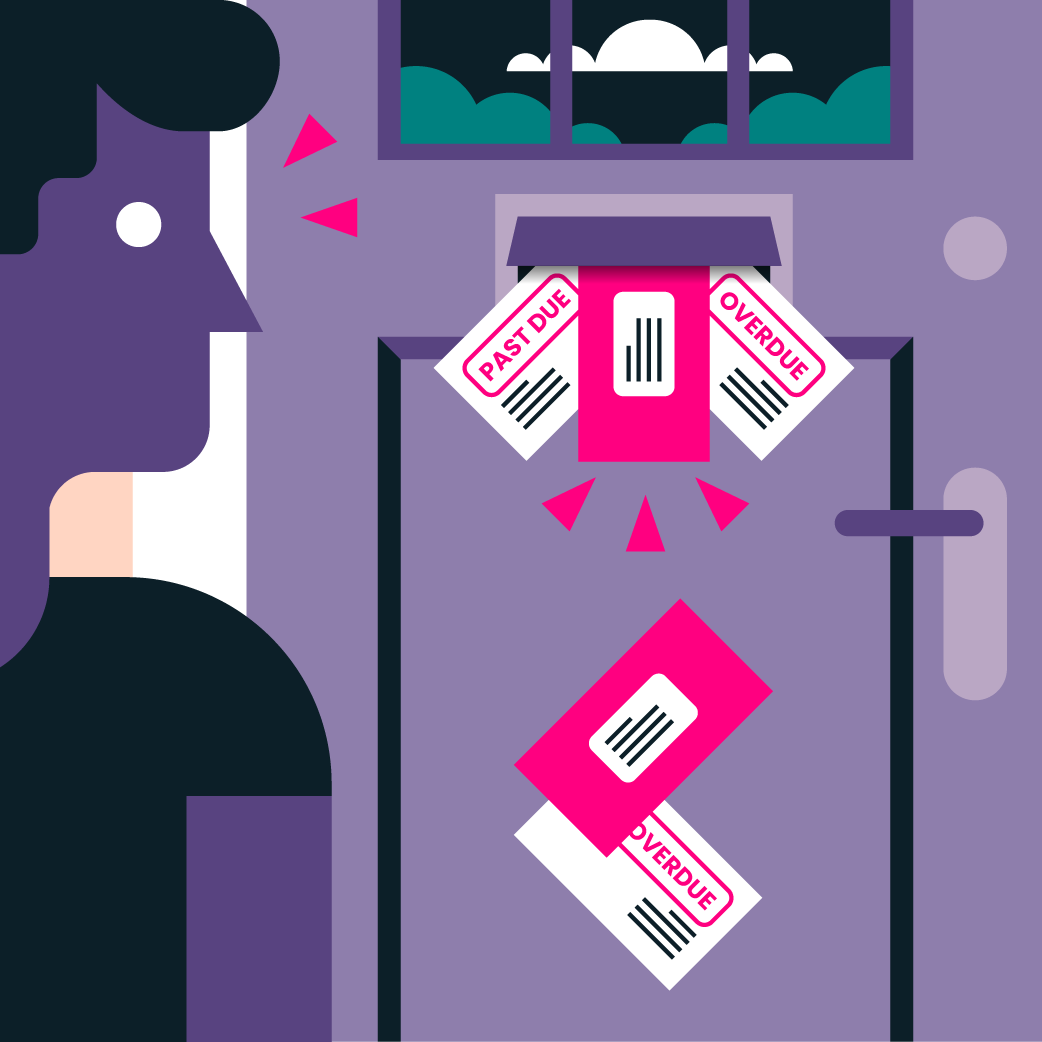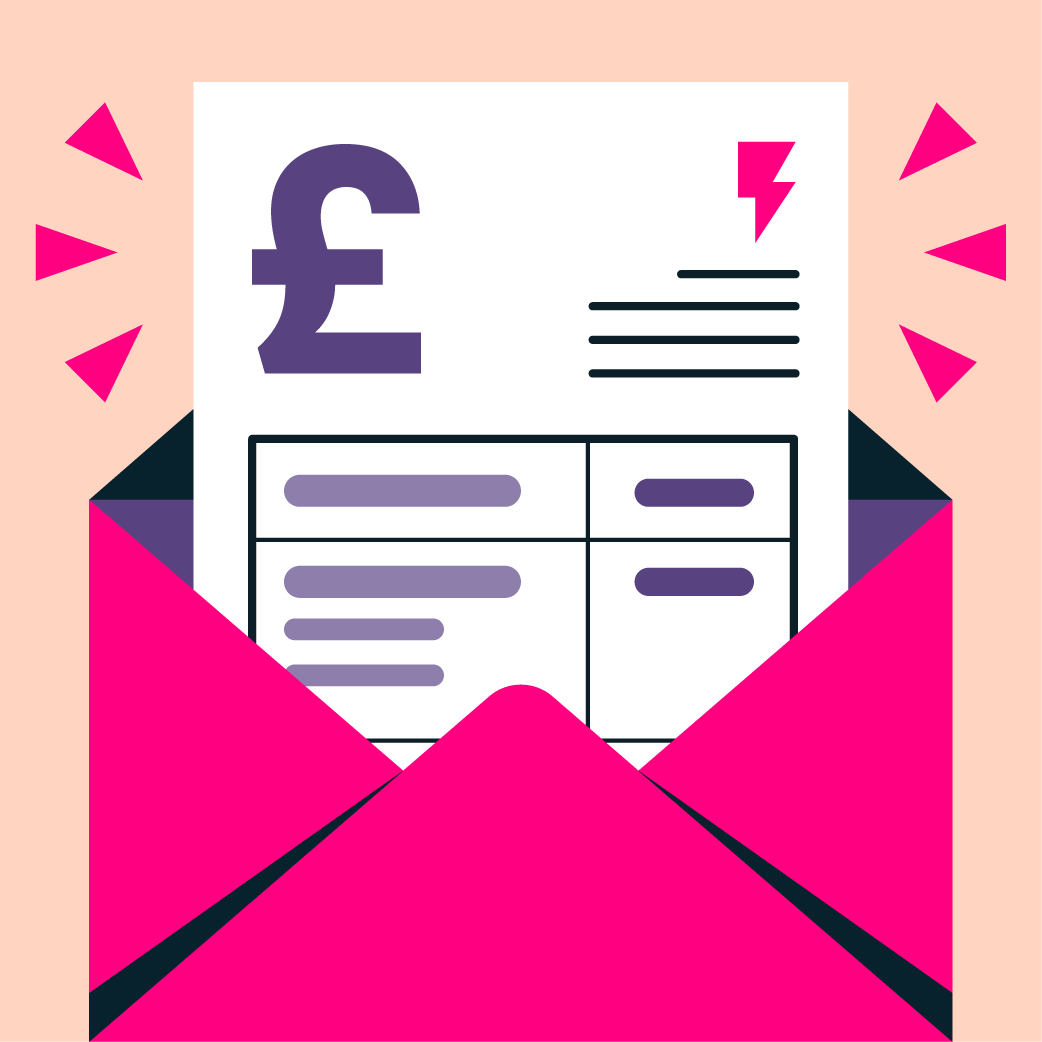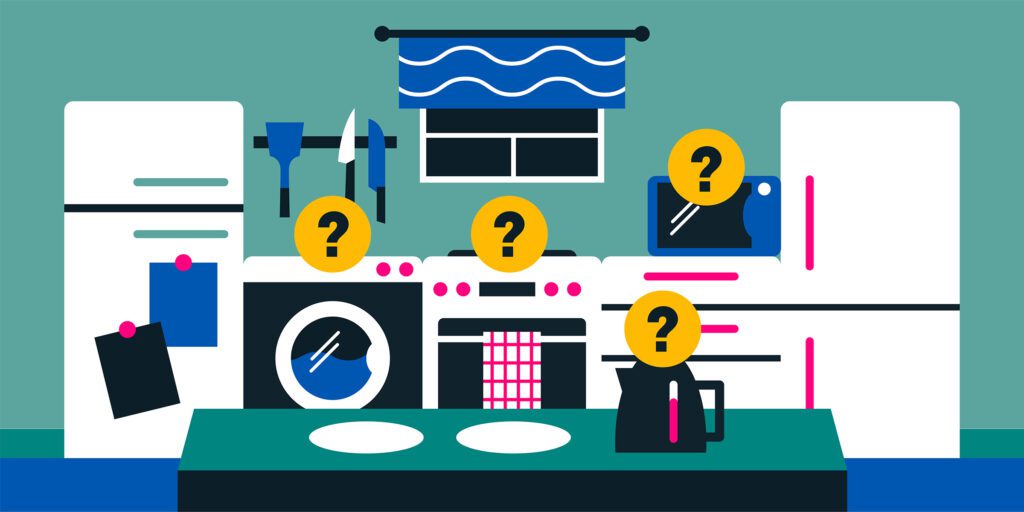Anxious About Energy Bills? Here's What You Can Do
If rising energy costs are making you feel overwhelmed, you’re in the right place – Loop is here to help.
Contents:
-
Why Do Financial Tasks Get Put Off?Why Do Financial Tasks Get Put Off?
-
Tackling Financial AnxietyTackling Financial Anxiety
-
Breaking Through the CycleBreaking Through the Cycle
-
Ask Yourself These QuestionsAsk Yourself These Questions
-
How Loop Can HelpHow Loop Can Help
-
Need Extra Support?Need Extra Support?
Energy bills have become a major concern for many households, with costs soaring in recent years. Financial anxiety often prevents people from taking proactive steps to manage their energy usage. Here’s an explanation of why this occurs and how you can tackle it head-on.
Why Do Financial Tasks Get Put Off?
Many people put off handling their finances, including their energy bills. According to a survey by Legal & General, 16% of people admit to putting off managing their finances.
But, it’s not because people don’t care about their money; it’s just that managing finances can feel overwhelming and stressful. The perceived complexity and pressure of financial tasks often make it hard to get started.


Tackling Financial Anxiety
Financial anxiety, often referred to as ‘money shame,’ manifests as a dread when it comes to handling financial matters. This anxiety can make simple tasks like checking bills or setting budgets feel too daunting. A survey by the Mental Health Foundation found that 32% of people have worried about being able to afford their energy bills in the last two weeks.
The good news is, that once you take the first step, the rest becomes easier. Facing your energy bill directly is the first move towards controlling your energy expenses.
Breaking Through the Cycle
With the right tools and knowledge, you’ll find it easier to take control of your energy use and reduce financial stress. Get started with our five-step checklist.
Step One: Understand the Jargon
Start by clueing up on key topics and you’ll soon see through the jargen. Not knowing what common energy terms and phrases mean can be a barrier to taking action.
- Start with our guide on how to read your energy bill.
- Then, expand your knowledge further with our explainer on the Price Cap.
- Our handy A-Z of home energy jargon is a helpful resource for everything in-between.
- Finally, check if there are any grants and schemes available to help with your costs.
Step Two: See What Others are Paying
Now it’s time to see how much your energy bill should be. Check our household comparison table. This will show you how much energy similar households to yours are using, and what it’s costing them. This information is essential when it comes to looking at your own bill. How else would you know if you’re using too much energy?
Step Three: Find Your Starting Point
Once you’ve got that knowledge under your belt, it’s time to look at your energy bill. If you don’t know how to read it, this guide will help. As difficult as this might be, the first step to reducing your energy bills is to see what you’re working with and what you want to work towards. This is your benchmark, so you can see the impact of the positive energy-saving changes you make.
Step Four: Monitor Your Usage
Now you’re ready to download the free Loop app. Tracking your energy use will help you stay accountable. See how much energy your household is using and what it’s costing you. Then ask yourself some simple questions:
- Are there days when your energy usage looks higher than expected – and why is that?
- How does your usage compare to previous weeks and months?
- Are there any spikes during the day that you can’t account for?
Interrogating your usage like this will help you see where to make improvements. On average, Loop users reduce their energy use by 15%.
Step Five: Improve Your Efficiency
It’s time to make some changes! Now you understand your usage and energy consumption patterns, you’ll be able to prioritise which changes will make the biggest impact on your energy bill. Start with these low-effort, high-reward changes. These are the changes you should make before anything else. It includes simple steps like turning off your standby appliances. This wasted energy makes up around 30% of the average electricity bill, so there are lots of savings to be made just by switching things off!
Ask Yourself These Questions
While you can’t turn off essential items like your fridge and freezer, many devices around your home may still be using energy without you realising. This is your “Phantom Load” - our name for this wasted energy - and it accounts for around 30% of the average energy bill.
To cut down on wasted energy, make sure to unplug devices like phone chargers, TVs, and coffee makers when not in use. However, bigger savings come from items you might overlook, such as electric towel rails, desktop computers, and electric underfloor heating.
Old or rarely used appliances, like extra fridges, security lights, and faulty set-top boxes, also waste significant amounts of energy. By managing these better, you can save even more. If you've only got time to find the most energy-hungry appliances in your home, these are the appliances to switch off first!
Eco cycles are energy-saving programs available on many appliances. They minimise running costs and save you money by using less energy even if they take longer to complete. Sometimes these cycles are longer than others, which can be confusing, but they will always use the least energy. That’s because heating and cooling is the most energy-grabbing part of the process. So, running a washing machine or dishwasher on a lower temperature setting will always be more efficient, even if it takes more time.
Washing machines, dishwashers, and tumble dryers together make up around 14% of your energy bill, so it’s worth taking action to reduce running costs! It just takes a simple settings change. Add this to your routine and soon it will become second nature.
A Loop survey revealed that a third of households are missing out on potential savings by not making the swap to LED's. They cost as little as £1, are far more efficient than the alternatives - they use 90% less energy - and all you need to do is change a lightbulb! They should definitely be top of your energy-saving to-do list, even if your old bulbs haven't broken yet. Some of today’s LED light bulbs claim a lifespan of as much as 25-30 years!
To save on lighting costs, remember to turn the lights off when you leave a room. It sounds simple, but it can be easy to forget. Build it into your routine and it will be a habit in no time! Consider making light switches more easily accessible and consider investing in smart plugs to give you more flexibility.
Benchmarking is crucial in many areas of our lives, such as sports training, where we track data, like time and speed, to gauge our progress and set goals. We use this information to understand where we stand and what we need to do to improve.
Similarly, understanding your energy consumption is important. While it might be uncomfortable to ask your neighbours about their energy bills, knowing how your spending compares can be a great incentive to use less. A study by US energy company Opower found that this alone helped households cut their energy bills by 3%.
That's why we've created this resource to help you see how your energy usage and costs stack up against others.
How Loop Can Help
At Loop, we help users take control of their energy bills by offering data-driven insights and personalised advice. Our free app shows you exactly how much energy you’re using and what it’s costing you, making it easier to track, manage, and reduce your usage. On average, our users save 15% on their energy bills.
Financial anxiety can stop us from taking action, but understanding and managing your energy bills doesn’t have to be overwhelming. Start small, and let Loop guide you through the process. You’ll feel empowered to take control—and your bank account will thank you!

Need Extra Support?
If you’re struggling with financial anxiety and need urgent help, don’t hesitate to reach out to mental health charities like Mind for support. For additional assistance with your energy bills, Citizens Advice UK can provide valuable guidance and resources. Remember, help is available, and you don’t have to face these challenges alone.
Related Guides

Beginners Guide to Loop
We want to help you get the most from Loop’s unique features. The better you can use Loop, the more you’ll reduce your energy bills and your carbon footprint.

Appliance Running Costs
We’re here to help you use your appliances efficiently. Understanding the financial impact of running everyday devices is crucial to save money on your energy bill.

How to Reduce Wasted Energy
Are your energy bills higher than expected? The answer could lie in the hidden culprit known as “Phantom Load” – our name for wasted energy.











